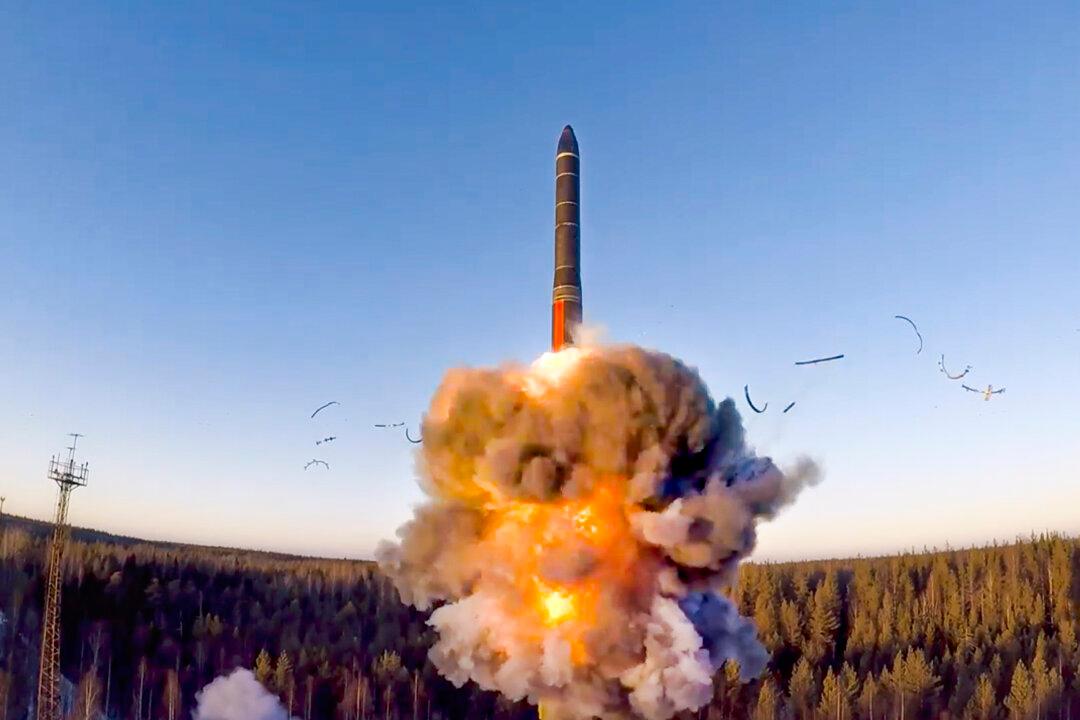Kremlin spokesman Dmitry Peskov said Tuesday that Moscow is not ruling out a nuclear strike under circumstances outlined in its military doctrine, including if Russia faces an “existential threat.”
Peskov was responding to a question by CNN’s Christiane Amanpour during an interview in which he was asked to confirm that Russian President Vladimir Putin would “never use a nuclear weapon.”





